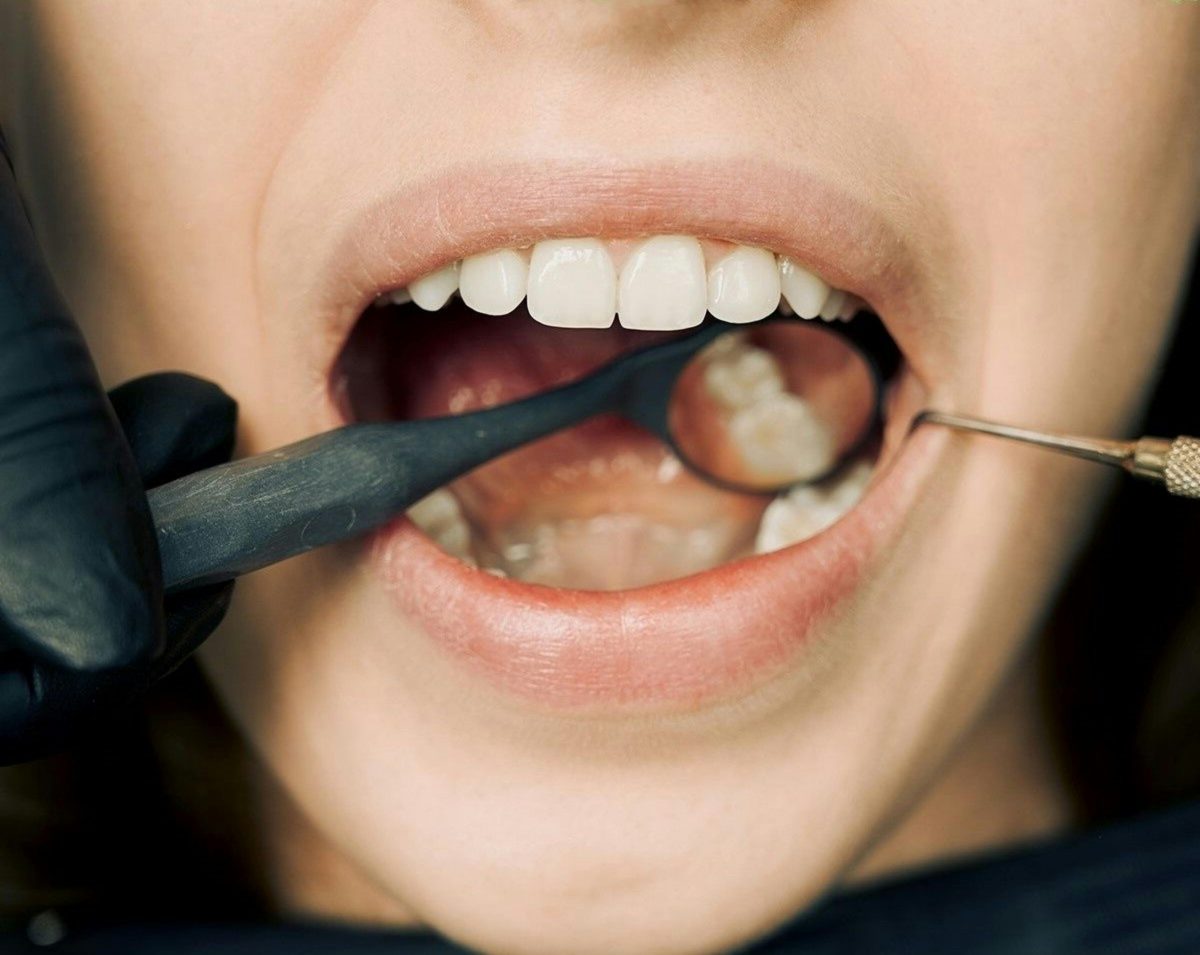The link between sleep apnea and oral health
Sleep apnea is a condition that affects people of all ages across Australia It affects not only sleep quality but also overall health and well-being. Understanding its implications on oral health is crucial in addressing and managing this common sleep disorder effectively.
Even though sleep apnea is generally associated with snoring it extends beyond this and can significantly affect your oral health. We asked dentists at The Practice a few questions to shed light on the intricate connection between sleep apnea and oral well-being.
What is sleep apnea?
Sleep apnea is a sleep disorder that is characterised by pauses in breathing or shallow breathing during sleep. They can be short pauses, for a few seconds or minutes, but can occur multiple times throughout the night.
What is the connection between sleep apnea and oral health?
Sleep apnea disrupts normal breathing patterns and can lead to problems with oral health. Some common issues you might experience include:
Dry mouth: Mouth breathing, common in sleep apnea, can cause dry mouth, increasing the risk of dental decay and gum disease. Saliva has an important role in oral health, washing away food debris, neutralising acids and preventing bacterial growth.
Without this saliva, the mouth is an ideal environment for harmful bacteria that causes tooth decay and gum disease. Your mouth no longer has its natural defence against bacteria, making you more susceptible to gum inflammation and periodontal disease.
Teeth grinding (Bruxism): Sleep apnea is frequently associated with bruxism, which can result in tooth wear, sensitivity, and even tooth loss. Repetitive grinding forces exerted on the teeth through bruxism can wear down the protective enamel layer, making teeth more susceptible to damage and decay. Over time, this can result in flattened, fractured, or chipped teeth, compromising their structure and function.
Gum disease: Gum disease, also known as periodontal disease, is a risk many individuals with sleep apnea face. When saliva production decreases, a common symptom of sleep apnea, the mouth becomes more susceptible to bacterial growth and inflammation, increasing the risk of gum disease.
Temporomandibular Joint Disorder (TMJ): If you have sleep apnea you may experience worsened temporomandibular joint disorder (TMJ) symptoms due to the strain on jaw muscles and joints during breathing interruptions. This can lead to jaw pain, stiffness, clicking sounds, headaches, and difficulty chewing or opening the mouth. The repetitive breathing pauses increase muscle tension in the jaw area, exacerbating TMJ symptoms or causing new ones to develop.

What treatment options are offered at The Practice West End?
We provide comprehensive dental care to treat the symptoms of sleep apnea. This includes treatment for bruxism, gum disease and TMJ.
Gum disease:
If you are diagnosed with gum disease, the type of treatment will vary depending on the severity of your condition. Non-surgical options include establishing an oral care routine and deep cleaning at the dental clinic. In more severe cases, periodontal surgery may be necessary to remove infected tissue and address bone loss.
Learn more about treating gum disease.
Bruxism:
Mouthguards offer essential protection for individuals suffering from bruxism. Custom-made guards act as a barrier between teeth, preventing enamel erosion, tooth sensitivity, and fractures caused by grinding. Additionally, they distribute force evenly, reducing strain on jaw muscles and alleviating associated pain such as jaw discomfort and headaches. By wearing a mouthguard, individuals can effectively prevent further damage, maintaining their oral health and preventing the progression of bruxism-related dental issues.
Learn more about teeth grinding.
TMJ disorder:
We take a comprehensive approach to treating TMJ disorder. We begin with a professional examination to accurately diagnose TMD and identify contributing factors. We may recommend over-the-counter medications, heat or cold packs, and muscle relaxants to help with any pain you are experiencing.
There are specific exercises to improve jaw mobility and reduce muscle tension and orthodontic interventions such as braces or splints can help to correct misalignments. In severe cases where more conservative treatments are ineffective, surgical interventions may be considered. However, surgery is typically reserved for specific conditions and is not the first line of treatment.
Learn more about TMJ disorder.
Sleep apnea and oral health at The Practice West End
The Practice dentists in Brisbane understand the significant impact of sleep apnea on oral health and overall wellness. By addressing sleep apnea promptly and treating the dental issues associated with this condition you can get a better night’s sleep and improve your oral health. If you are experiencing related oral health concerns from sleep apnea, don’t hesitate to reach out to our compassionate dental team for support and guidance. Contact us today at 07 3733 3223 or book an appointment online.


